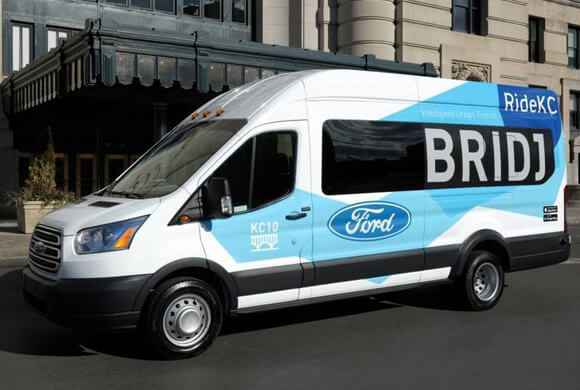This new ride-hailing van service will start with morning rush hours with the fare of $1.50, Mondays through Fridays
What is it?
This micro transit is the metro area’s experiment which will go underway Monday after the launch of on-demand shuttle service RideKC: Bridj by the Kansas City Area Transportation Authority (KCATA). To make it more beneficial for the citizens, the authority has decided to operate the new ride-hailing van service during rush hours – from 6:30 to 9:30 a.m. and 3:30 to 6:30 p.m. Mondays through Fridays.
Ford Transit diesel engine is highly frugal and powerful as well as eco-friendly, so it is obviously going to be the best logical choice for the project.
How to avail this ride?
This service is named RideKC: Bridj, it will cost $1.50 but to make it more interesting, the company has decided to give first 10 rides per person free to all those commuters who will use KCBRIDJ promo code.
This program is utilising a smartphone app through which the users can easily view the service areas by looking on the app’s map and the shaded areas will be the ones served. These areas are Hospital Hill, Kansas City, portions of Kansas City’s midtown areas, Crown Centre and the 18th and Vine Jazz District.
Are these areas final?
No they are not. The exact boundaries are made flexible so they could expand or shift depending on rider demand, during the one-year pilot program. Using this app, the riders can book themselves trips in real time but 24 hours in advance.Boston-basedTechnology CompanyBridjand Ford Motor Co. has collaborated with KCATA to offer this transit service last month.
With a custom 14-passenger seating layout, Ford is going to provide 10 Transit passenger vans. To get the riders to their destinations efficiently, Bridj will be providing necessary technology. The app can be downloaded from Google Play or Apple’s App store. This pilot programme will cost KCATA $1.3 million.




